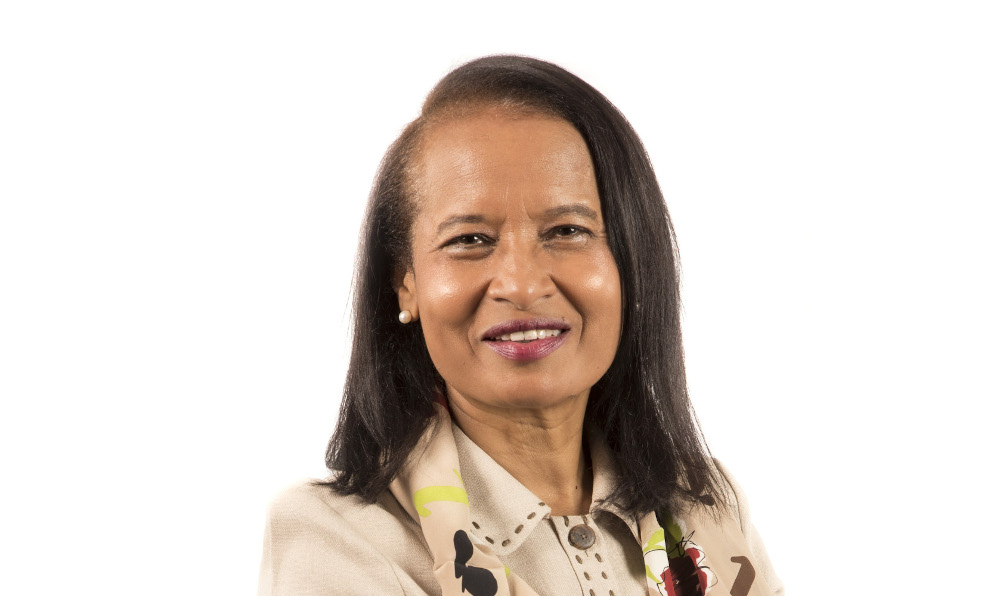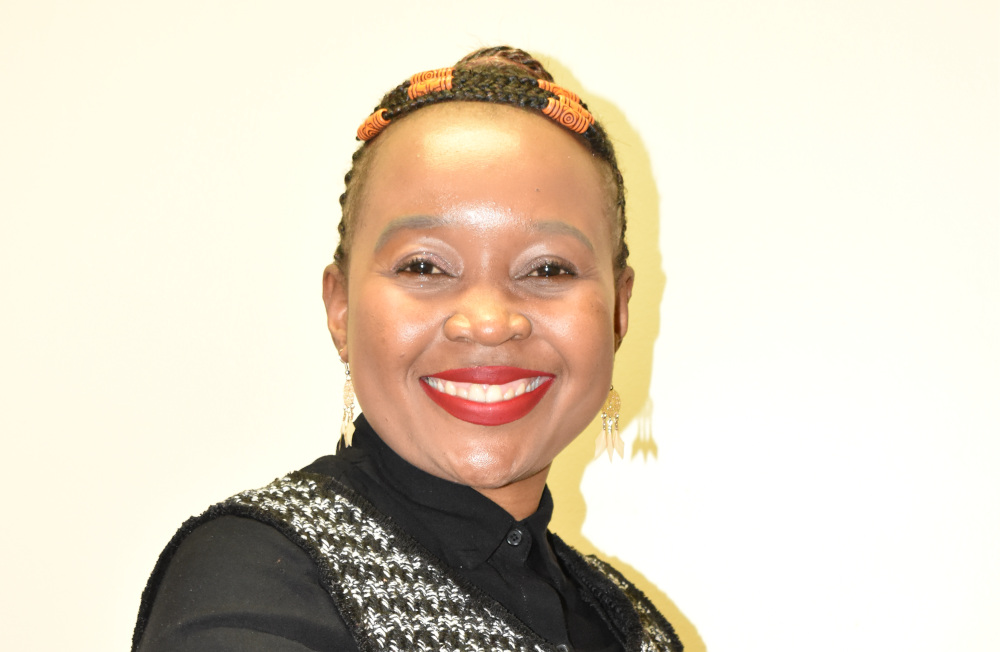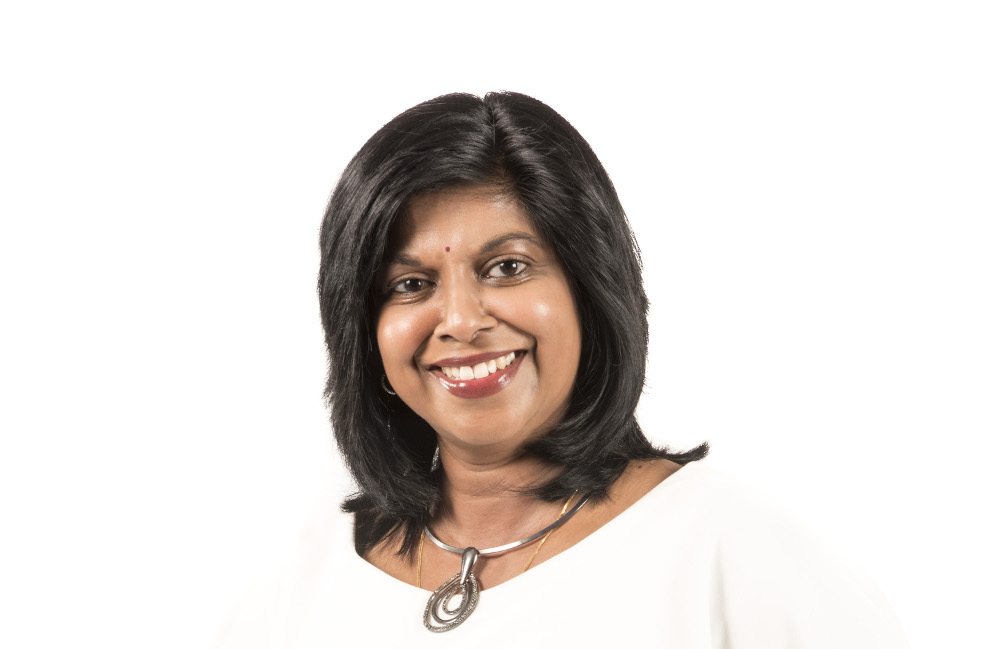Mxolisi Mgojo, Chief Executive Officer at Exxaro
This Mail & Guardian webinar was sponsored by Exxaro. It featured Mxolisi Mgojo, Chief Executive Officer of Exxaro; Dr Geraldine Fraser-Moleketi, Lead Independent Non-executive Director and Chairperson of the Social and Ethics Committee; and Dudu Patience Dlamini, Geologist. It was moderated by Vanisha Balgobind, Executive Head, Human Resources.
Vanisha Balgobind opened proceedings by expanding on the concept of inclusion, and how important the concept is becoming for companies globally. Our strength lies in our differences, which, put together, create value for businesses. She said the mining industry and particularly Exxaro are promoting diversity in the workplace.
 Dr Geraldine Fraser-Moleketi is Lead Independent Non-executive Director at Exxaro
Dr Geraldine Fraser-Moleketi is Lead Independent Non-executive Director at ExxaroDr Geraldine Fraser-Moleketi said she believes this discussion topic is of vital importance to us all. South Africans are still struggling with a legacy of exclusion, largely of race and gender. The Constitution is founded on equality, non-racism and non-sexism, but often our discrimination against certain people is subtle, appearing in ways we are not really conscious of. It happesn on a daily basis, because it is so entrenched and widespread, and we may practise it although we claim not to.
Mxolisi Mgojo extended this concept, saying that our prejudices from our homes are brought with us into the workplace. The mining industry in South Africa was founded on exclusivity and preference for a few, so rectifying these issues is an ongoing process of transformation; it is still male-dominated, on the ground and at the board level of the Minerals Council and in all mining companies.
Dudu Dlamini said her understanding of diversity is that we all have different perspectives; we come from different age groups and different cultures, but it is these differences that make us stronger.
Fraser-Moleketi said the Constitution is what underpins the government’s actions, and that Broad-Based Black Economic Empowerment is the most comprehensive strategy of inclusion that it has instituted thus far. The Department of Trade and Industry developed these codes of good practice to regulate and promote transformation across South Africa’s industries. There are other individual industrial policies, such as the Mining Charter, King IV and the Employment Equity Act, “so we cannot argue that government has not done enough concerning inclusion”. The big question is, how are these being implemented in the workplace? This goes beyond mere compliance and addresses the issue of balancing work performance with social progress. Government has put a good framework in place, but some companies are merely ticking the boxes, and when they do so, inclusion will never be attained. Everyone has to do their part.
 Dudu Patience Dlamini is an Exploration Geologist at Exxaro
Dudu Patience Dlamini is an Exploration Geologist at ExxaroMgojo said the Minerals Council has recognised that the inequalities of the past cannot be allowed to exist in the future. In March 2020 the council published a white paper on women in mining to address inequality and gender-based violence (GBV) in the workplace and at home. A committee of gender-diverse mining companies’ CEOs was established to monitor progress and define the way forward; this shows that the issue of inclusion is being taken seriously by those at the highest level in the industry. The committee will be reporting to the minister to demonstrate what steps are being taken to address inclusion in the mining industry.
Exxaro has put structures in place to deal with gender diversity, said Mgojo. Men must engaged to solve various problems such as GBV, because men are the culprits, and have to take ownership for abuse to cease in the home and the workplace. Diversity and inclusivity of part of Exxaro’s core strategy, and the company must deliver on it, for instance regarding pay disparities, and equal representation of women at all levels. Exxaro is taking this issue so seriously that if targets are not met, bonuses are withheld.
Dlamini said she encountered inequality in the mining industry when she joined it 11 years ago, but there are now more women involved in the geology sector and in senior management. The education of women has been very successful in bringing women into the professional workplace, and this has removed the stigma, allowing for transformation to take place at a faster rate. Legislation passed by the government has helped in this regard, but this legislation must be driven by transformative leaders who view change as a positive way forward. “Exxaro has been blessed with such leaders,” she said. Women have helped themselves in this transformation, assuming leadership roles, and taking opportunities; women must not shy away from opportunities. If you are given a responsible position, own it and use it wisely, urged Dlamini.
Fraser-Moleketi spoke about board diversity and inclusion and how it relates to gender and race. “Inasmuch as boards recognise diversity, there is reluctance; the action is not as fast as the talk.” A recent survey completed on many companies revealed that there are still very few black people and women in top leadership positions; some had no women on their boards at all. There are no one-size-fits-all interventions to ensure that diversity and inclusion (D&I) is implemented in companies; each company must work out how to implement it themselves. Exxaro has a 22% female representation in its workforce.
 Vanisha Balgobind is Executive Head of Human Resources at Exxaro
Vanisha Balgobind is Executive Head of Human Resources at ExxaroOrganisations have to agile, pointed out Mgojo, when implementing D&I. Filling vacancies is one way in which women and blacks can be brought into the company. There are new ways to educate and reskill the workforce, due to 4IR, so that even those who were not given education opportunities can develop their skills, for instance through stimulators. “We have to move past this barrier where we say ‘if you do not have a matric you are useless’ because not having one could have been just a result of your circumstances,” he said. Training is essential, and we can use it to change our mindsets, because our mindset defines our behaviour and thus our culture, for instance regarding gender. We also have to create a workspace that allows for and incorporates more people with disabilities; work can be done from anywhere nowadays. These issues are all part of a broader strategy at Exxaro.
Questions
A question was raised by a member of the webinar audience: how do employees act out inclusivity, at work and in our personal lives? Dlamini replied that gender diversity is one of the pillars of Exxaro’s strategy; there is a task team in place to try and remedy issues such as pay disparity. Fraser-Moleketi added that the company is dealing squarely with this issue.
Another audience member asked if BBBEE should still be the government’s main focus to address D&I? Fraser-Moleketi said she thinks it is still appropriate, although many complain that despite these policies there is little implementation taking place.
Mgojo said one has to take into account the history and demographics of South Africa when creating your D&I strategy: one has to peel away the layers of the onion and the confront the issues head-on. Skilling for the future is essential, not only in the company but in the youth of the communities surrounding the company’s operations; people must gain access to the internet, for instance. “We have to be very deliberate about how we enable these kinds of environments … we have to create a future for the next generation.” He spoke about the “impact catalyst”, which involves collaboration with other companies and government entities to create new economies and opportunities.
Fraser-Moleketi said the D&I strategy at Exxaro will be implemented at all levels. She said a company must understand the skills available within it and that solutions must be tailor-made. People must be engaged outside of their comfort zones, and management should not just hire people like them. “Discrimination is so widespread that we think it is normal.” HR and Exco need to systemically change the ways they do things.
Dlamini said that Exxaro’s anti-GBV campaign should be inclusive; men must be included. Both sexes must take part in the training programmes. “We must do it together.” Mgojo said that men should be at the front in such campaigns. GBV is a social issue, not just a workplace issue; “Exxaro is just trying to do its part in addressing the ‘inherent unwell-ness’ in the men in our society.” Exxaro is not leading the pack; we are all in this together, trying to find solutions.
GBV against women and girls is a world-wide pandemic, pointed out Fraser-Moleketi. She said a lot needs to be done for this to change. Change must start in the family and the way children are raised. Every sector in society needs to speak out; harassment and violence must stop! Systemic change is required. Women must claim back their lives.
Balgobind said in closing that she could hear the passion in the speakers’ voices, and said she hoped the nation will be resilient in facing its challenges.
To view the webinar, click here